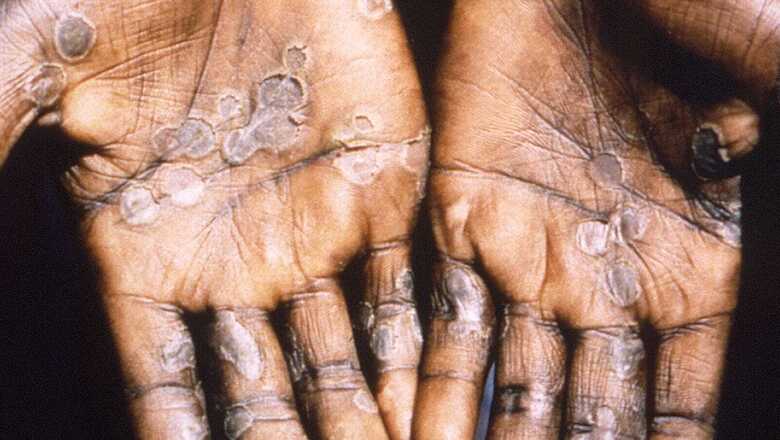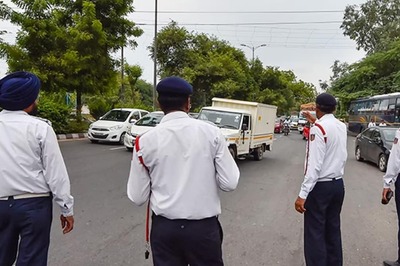
views
As the world continues to fight Covid-19, another virus that has been in circulation in European countries after its existence in the African region has caught the attention of the World Health Organization. India too, has now seen two cases.
Monkeypox is a disease that is caused by the monkeypox virus, capable of spreading from animals to humans, and has been reported to the tune of 2,000 since January with one reported death. The World Health Organization has maintained that monkeypox constitutes a “moderate risk” to overall public health at the global level after cases were reported in countries where the disease is not typically found.
“The public health risk could become high if this virus exploits the opportunity to establish itself as a human pathogen and spreads to groups at higher risk of severe diseases such as young children and immunosuppressed persons,” WHO had warned.
WHO Chief Tedros had earlier also expressed distress at the inaction on the part of the international community with regard to recognizing and curbing the spread of the Monkeypox virus which has been killing people in Africa for decades.
What is Monkeypox Virus?
Monkeypox is an infectious disease that is usually mild and is endemic in parts of the west and central Africa. It is spread by close contact, so it can be relatively easily contained through measures such as self-isolation and hygiene. Most of the cases reported so far have been detected in the UK, Spain, and Portugal.” The vast majority of reported cases so far have no established travel links to an endemic area and have presented through primary care or sexual health services,” the UN agency said.
Monkeypox Risk, Moderate? WHO Explains Why
WHO expert Dr. Rosamund Lewis, in a video shared by the world health body on Saturday, explained why the risk of the Monkeypox has been said to be “moderate”. Lewis answered various questions related to the disease and also assured that it causes mild illness.
What are the symptoms of #Monkeypox? Who is at risk and how can we protect ourselves? What is WHO’s response? This and more.???? WHO’s Dr.Rosamund Lewis, @PeopleDocGeneva, explains in Science in 5. pic.twitter.com/GFKgBaqPt6— World Health Organization (WHO) (@WHO) June 11, 2022
“Most people who contract the virus do not become seriously ill. However, the risk has been described as moderate because it’s spreading to locations where it has never been reported before. So this new pattern of spread is concerning. So WHO aims to identify where the risk may be, and who may be at risk. This is the message we’re sending – If you know your own risk, you can lower your risk,” she explained.
WHO Quells Fears, Suggests Guidelines to be Followed
- WHO talks in favor of home assessment when deciding to isolate and care for a person with suspected or confirmed infection with the mild uncomplicated disease in a home setting. It also says that symptoms in mild cases should be constantly monitored as well as a patient’s mental health.
- Extra precaution should be followed while handling cleaning linens, and household surfaces and during waste disposal recommends WHO.
- All patients should be advised to abstain from sexual activity until all skin lesions have crusted, the scabs have fallen off and a fresh layer of skin has formed underneath”, the guidelines note.
- Patients at high risk for complications namely young children, pregnant women, and those who are immunosuppressed or with severe or complicated infections should be admitted to the hospital for closer monitoring and clinical care under appropriate isolation precautions to prevent transmission.
- Newborns of infected mothers should be constantly monitored, and “infant feeding practices, including whether to stop breastfeeding for a mother infected with the virus, should be assessed on a case-by-case basis”.
Read all the Latest News, Breaking News, watch Top Videos and Live TV here.




















Comments
0 comment